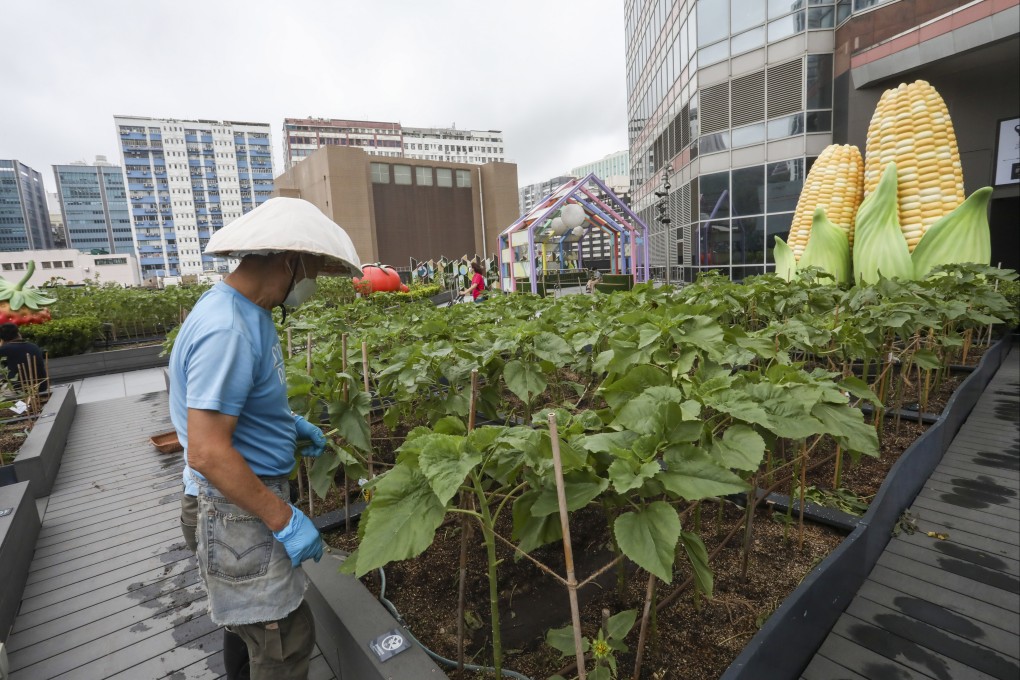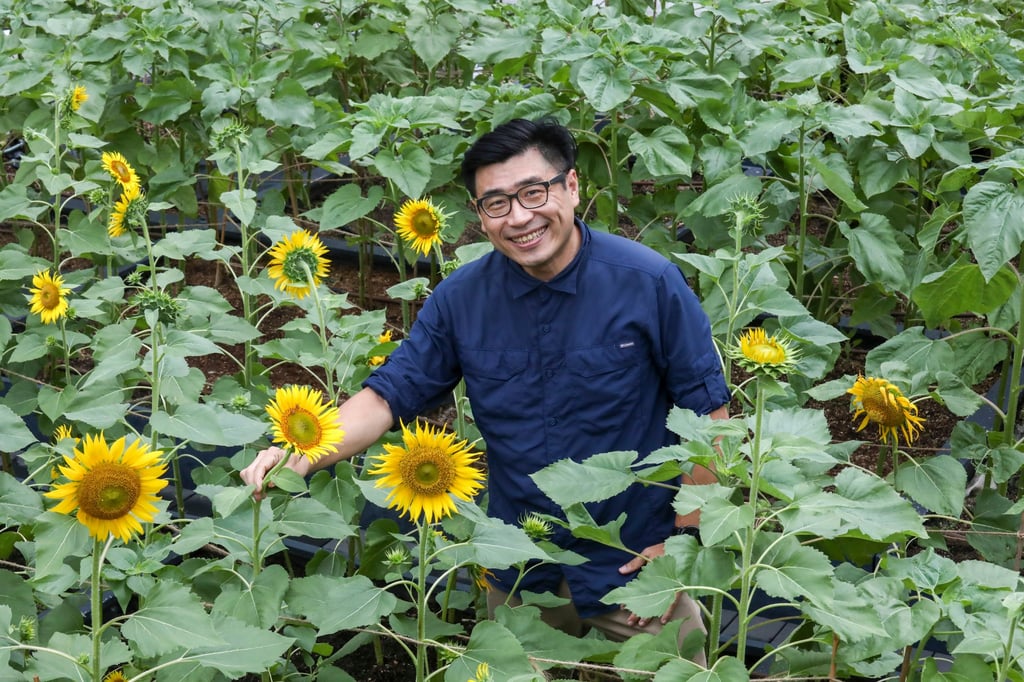Urban farming a form of mental health therapy for rooftop gardeners in Hong Kong, and it fosters a sense of community and healthy eating, advocates say
- Farming and gardening are linked to lower levels of depression, stress and anxiety – and eating the healthy food they grow is good for farmers’ immune systems
- In Hong Kong, social enterprise Rooftop Republic’s gardens on mall and tower block roofs provide work for retired farmers and foster social interaction

Lai Yuk-hung tends to a lush plot of vibrant sunflowers. Sporting a white tank top and khaki trousers, paired with a rattan hat, he’s well attired for his work as a part-time farmer with Rooftop Republic.
Launched in 2015, the social enterprise strives to improve Hong Kong’s social fabric through supporting local farmers and integrating urban farming into the city.
“We are trying to turn our grey city into green,” says Andrew Tsui, 44, Rooftop Republic’s co-founder.
The team has worked with engineers, architects, developers and property managers to bring urban farms to office buildings and shopping malls such as Metroplaza in Kwai Fong, where Lai, a former rural farmer, is stationed.

The 13,000 sq ft (1,200 square metre) “Sky Farm” is a green oasis of fruit trees, herbs and sunflowers nestled among the monotone residential buildings of the neighbourhood.